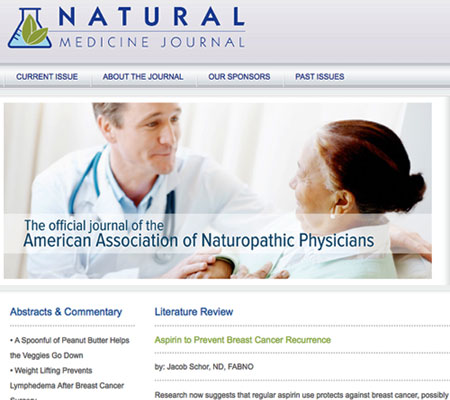
Online medical resources are improving healthcare, access to information and communication between patients and physicians.
Patients — and even doctors — who want more information about a health topic are more likely to turn to the Web than any other source, and that trend is only increasing.
This arena is one Karolyn Gazella understands firsthand. She collaborates with the American Association of Naturopathic Physicians to publish the Natural Medicine Journal, and though she started her career in traditional print media, she sees electronic information as a boon to people interested in learning more about health issues and topics.

“As an ‘old school’ print publisher, it was difficult at first to enter the world of online health publishing, but now I wonder most days how we lived without it,” Gazella told TechNewsWorld. “Because we are an e-journal, we can reach a much broader audience.”
A primary benefit of online publishing in the medical community is the ability to respond quickly to new information as it’s released.
“Compared to a print journal, Natural Medicine Journal can respond quickly to important events,” said Gazella. “For example, the natural health industry has ingredients sourced from Japan, so we did stories regarding the nuclear disaster in Japan shortly after it happened.”
The downside of finding medical information online, however, is that it’s not always true, and consumers might not understand the commercial or other interests behind the information.
“Surveys show that one of the key reasons many people use the Web is to gather health information,” said Gazella. “This has become a double-edged sword because not all information on the Web is accurate or can be trusted. Armed with misinformation, patients can make life-changing decisions that could in fact cause harm to their health. On the other hand, when consumers find quality, trusted information, they become more empowered, informed and inclined to be proactive. When used properly, medical information found on the Web can be incredibly important to one’s health.”
Cancer sites, in particular, are sometimes suspect, according to Gazella, who also publishes a site called CancerThrivers, which offers information about cancer treatments and research.
“The worst offenders are sites that make claims for cancer cures that are not substantiated in the scientific literature or sites that encourage cancer patients to deny conventional treatment in place of an unproven treatment,” said Gazella. “Cancer patients and their families are some of the most frequent visitors to health information websites, so we need to take care not to be irresponsible in our discussions surrounding alternative cancer treatments.”
Health Hubs
Remedy Health Media is another company that provides a variety of sites and services for health-related information.
One of its sites, HealthCentral, provides expert patient and physician information from around 2,000 people living with over 30 diseases and conditions, including everything from heart problems and rheumatoid arthritis to cancer.
“A lot of people in the industry talk about ‘living-with information,’ and HealthCentral has the most expert living-with information, because of the patient experts who write it,” Jim Curtis, Remedy Health Media’s chief revenue officer, told TechNewsWorld. “It’s the most real living-with content because it’s coming from someone who’s living with it.”
Remedy also provides health content in partnership with Johns Hopkins Medicine on its HealthCommunities site, and it publishes one of the oldest HIV-related sites on the Web, called The Body, which was founded in 1995.
“[People] can get information about being safe, patient testimonials, symptoms and treatments, and breaking news,” said Curtis. “It’s a site that allows people to connect with a community about being diagnosed and find ways to live with the disease.”
Making the Grade
Patients can also get information about physicians and hospitals online, facilitated by companies such as HealthGrades, which publishes profiles of 750,000 physicians in the U.S. as well as information about and ratings of most major hospitals.
“HealthGrades is the number one provider of quality healthcare information,” Kristin Reed, vice president of hospital ratings for HealthGrades, told TechNewsWorld. “Our goal is to give consumers information that they need to make important quality decisions.”
Information about physicians comes from public and private databases, patient reviews and physicians themselves. Hospital information comes from the Centers for Medicare & Medicaid Services. HealthGrades reviews risk-adjusted mortality rates and then assigns ratings to hospitals based on that data.
“Our mission is to guide America to its best health,” said Reed. “What we’re trying to do is empower consumers with the information they need. We really try to provide as comprehensive information as possible.”
For people searching for information online, Reed suggests that they do thorough research using trusted sources.
“Research everything,” said Reed. “Know everything you can about your condition. Don’t make your decision based on reputation alone. Reputation is not an objective source of information.”
Perhaps the most useful function of online medical resources is that they encourage and facilitate conversations between patients and their doctors.
“With digital medical information, it’s much easier for people to get information,” said Curtis. “They can be more informed and have better doctor discussions. People will read information on a website and then come up with questions to ask their doctor.”





















































